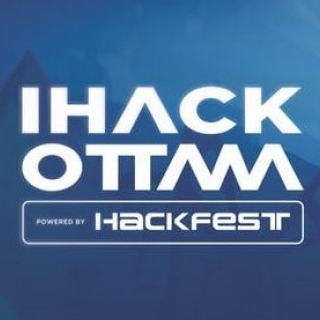Carleton Bridges the CyberSpark and Regional Cybersecurity Ecosystems
On April 4, 90 people from 54 organizations filled Carleton University’s Senate Room to hear Roni Zehavi, CEO of CyberSpark, and examine synergistic opportunities between Canadian and Israeli firms. People from large and small companies in Ottawa, Montreal, New York and Kingston accounted for two-thirds of attendees.
Carleton’s Technology Innovation Management (TIM) program, the Embassy of Israel and VENUS Cybersecurity Corp. hosted the event to establish a bridge between the cyber ecosystem anchored at the desert city of Beer Sheva, dubbed the Cyber Capital of Israel, and our region’s cyber ecosystem.
Zehavi first shared Israel’s experience in building the brand new international cybersecurity ecosystem by partnering with government, academia and industry to develop the next generation of cyber experts and companies.
Unprecedented in the world, the CyberSpark ecosystem is establishing itself as a centre of innovation in the burgeoning cybersecurity industry. Israel is home to 430 cybersecurity companies and 40 cybersecurity research and development centres of foreign multinationals, many now based at CyberSpark. Multinationals such as Deutsche Telekom, PayPal, Oracle, Lockheed Martin and IBM already have a presence in the desert development.
“I would like to thank (TIM Director Tony) Bailetti, and Venus Cybersecurity for not only hosting this special event, but for passionately leading such a diverse group from industry government and academia to find practical areas of collaboration with Israel,” said Israeli Ambassador Rafael “Rafi” Barak. “Despite our geographic distance, Israel and Canada are natural partners and I foresee a future where the cybersecurity hubs in Ottawa and Beer Sheva are closely intertwined in a larger global network of ties.”
Multinationals, small companies and startups from all over the world are being invited to take their cybersecurity concerns to Beer Sheva.
“Israel is very unique,” Zehavi explained. “Israelis are encouraged to make mistakes. It’s considered to be a natural process. And we network. People know each other. People are moving all the time, coming out of the military and moving into corporations or academia, coming up with ideas for a startup and, if it doesn’t work, returning to the corporate or the academic worlds.”
Motivating international stakeholders to link up with the Israeli hub, Zehavi said CyberSpark has a service called Landing Pad that enables global players to smoothly transition into the Israeli cyber innovation arena without risk.
Attendees identified various ways to bridge the Beer Sheva and regional cyber ecosystems. These included organizing a global competition for ventures in cybersecurity, operating a digital platform to link members of any two cybersecurity ecosystems, creating an infrastructure to support start-ups as they take their cybersecurity products and services to global markets, delivering courses and programs on cybersecurity, and enabling companies to match-make quickly, validate and test their proofs of concept in other countries, and co-develop core technology.
Said Sherif Koussa, CEO of SoftwareSecured: “Roni Zehavi delivered an amazing presentation that highlighted the Israeli experience with cybersecurity. The main takeaway for me is the importance of collaboration between industry, academia and government stakeholders.”
“The development of an ecosystem that links ecosystems around the world is critical to supporting Canadian start-ups and maintaining Canada’s place at the forefront of technology innovation,” said Ewan Reid, CEO of Mission Control Space Services.
“Carleton will lead the way to link the regional cyber ecosystem with other strong cyber ecosystems around the world such as CyberSpark,” said Bailetti. “We believe in the benefits of an ‘ecosystem that links ecosystems’ model for innovation and technology entrepreneurship.”
Said Steven Muegge, a TIM faculty member who managed the question and answer period: “We expect that linking our regional ecosystem to the CyberSpark ecosystem and other strong cybersecurity ecosystems will benefit Carleton students across various disciplines who are interested in cybersecurity.
“Business ecosystems bring together people and organizations to work towards collaborative outcomes that no organization could achieve on their own. Cybersecurity is a growing problem that requires collaboration and global ecosystem thinking.”








